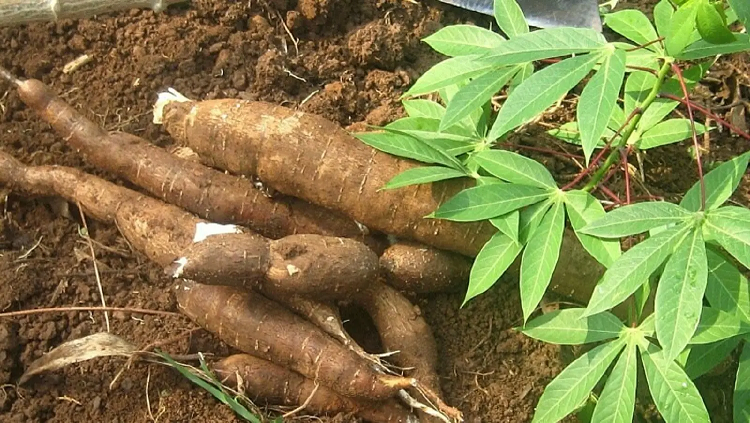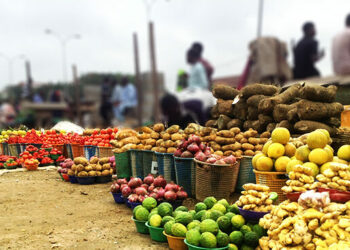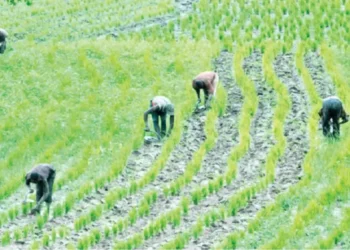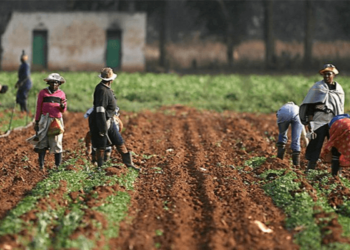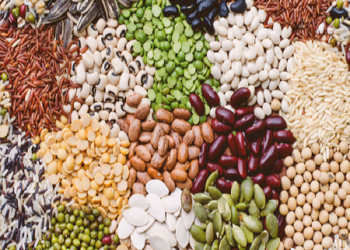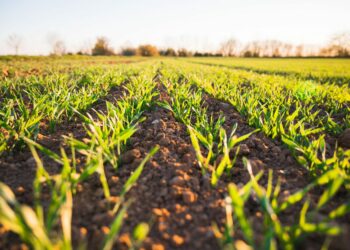In Nigeria, cassava remains of the most consumed staple food that feeds millions of families and even across Africa. It is also a versatile crop that can be processed into various products such as flour, starch, ethanol, glucose syrup , sweetener, animal feed etc.
Despite being the largest producer of cassava in the world, Nigeria is yet to fully exploited the economic potential of the crop in many ways especially to improve value addition and trade of cassava and its derivatives.
According to the former president of Nigeria Cassava Growers Association (NCGA), Segun Adewumi, opportunities in the cassava value chain can turn the economy of Nigeria around within three years.
He said that cassava processed into various derivatives can reduce Nigeria’s import bill by 5 trillion Naira and rigger industrial revolution that will earn Nigeria billions of dollars.
“Beyond the value of the derivatives imported annually, there is a very important industrial product that will not only reduce our import bills on white wheat but will largely support the food security concerns of the government.
“For example, in 2014, the Bread bakers in Nigeria utilised 16,600 metric tonnes of flour daily for bread. As at today, I am told that white wheat flour sells for about N650, 000 per ton. This is to say if we use around 6,059,000 metric tonnes of flour per annum, the cost of the flour that we use comes to N3.9 trillion. Right now, Nigeria is the second highest importer of wheat in the world. Whereas, Nigeria has expansive arable land and able work force,” he said.
Adewumi called for the establishment of Cassava Development Commission which according to him will complement oil as the mainstay of Nigeria’s economy but will require a strong political will on the side of federal government to accomplish.
Findings showed that one of the biggest challenges in the Nigerian cassava value chain is the low productivity. According to PwC, the average yield of cassava in Nigeria is about 15 tonnes per hectare, which is below the global best practice of 40-50 tonnes per hectare.
The reason accounted for this low productivity is partly due to the use of poor quality plant materials, poor agricultural practices, pest and disease infestation, and lack of inputs and credit.
Another identified challenge is poor infrastructure and logistics that hinder the transportation and storage of cassava. Cassava is a highly perishable crop that loses its quality and value within 48 hours of harvest. Therefore, it requires effective post-harvest handling and processing to maintain quality and extend shelf life.
However, many farmers in Nigeria keep struggling to transport their fresh cassava roots to markets or processing centers due to poor roads, high transport costs and inadequate storage facilities.
There’s still another big challenge of low industrialisation and added value of the cassava sector. Although Nigeria has high domestic demand for cassava products such as high quality cassava flour (HQCF), cassava starch and ethanol, supply has not been able to meet the demand. For example, PwC estimates that the gap between supply and demand for HQCF is approximately 485,000 tonnes (MT) per year, while the gap for cassava starch is approximately 290,000 MT. This means that Nigeria is losing potential income and revenue from these products. potential.
Despite these challenges, there are also many opportunities to improve the cassava value chain in Nigeria. One of them is the development and introduction of improved varieties and technologies that can improve the productivity and quality of cassava. For example, cassava varieties rich in vitamin A which is already available to farmers can be highly promoted because of its potential to improve the nutritional value and health of consumers.
The addition of tissue cultures can also provide large quantities of virus-free, high-quality plant material that can improve farmers’ yields. Another option is to promote public-private partnerships (PPP) and contract farming systems that can connect farmers with processors and markets. This arrangement can give farmers access to inputs, credit, extension services and guaranteed products.
They can also ensure a continuous supply of raw materials to processors and reduce production costs and risks. In addition, they can create market linkages for small farmers and increase their bargaining power and income.
Other option is to diversify cassava products and innovations to meet the needs and preferences of different consumers and industries. For example, cassava peels, which are usually considered waste, can be turned into a safe and nutritious feed that supports the livestock sector.

